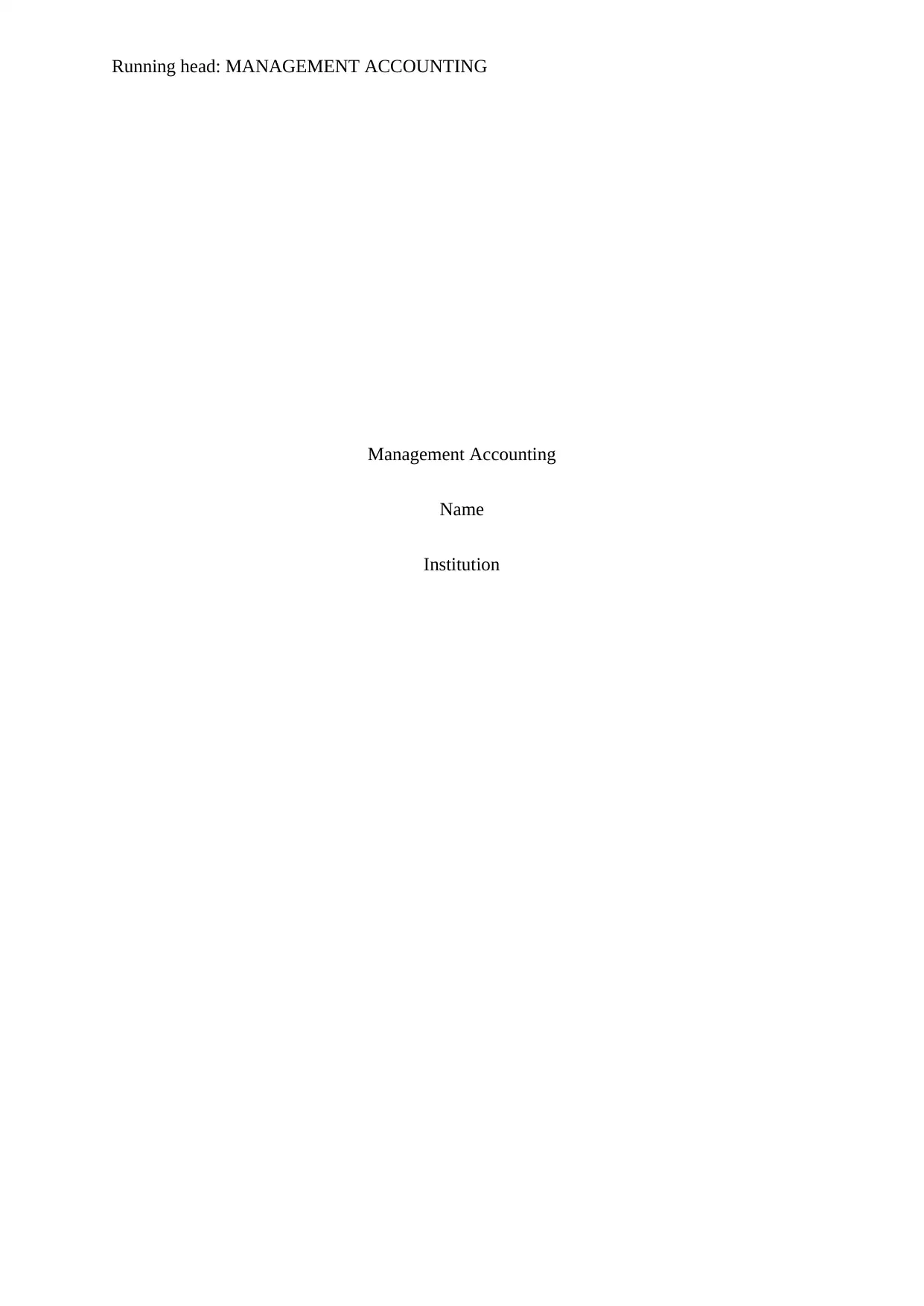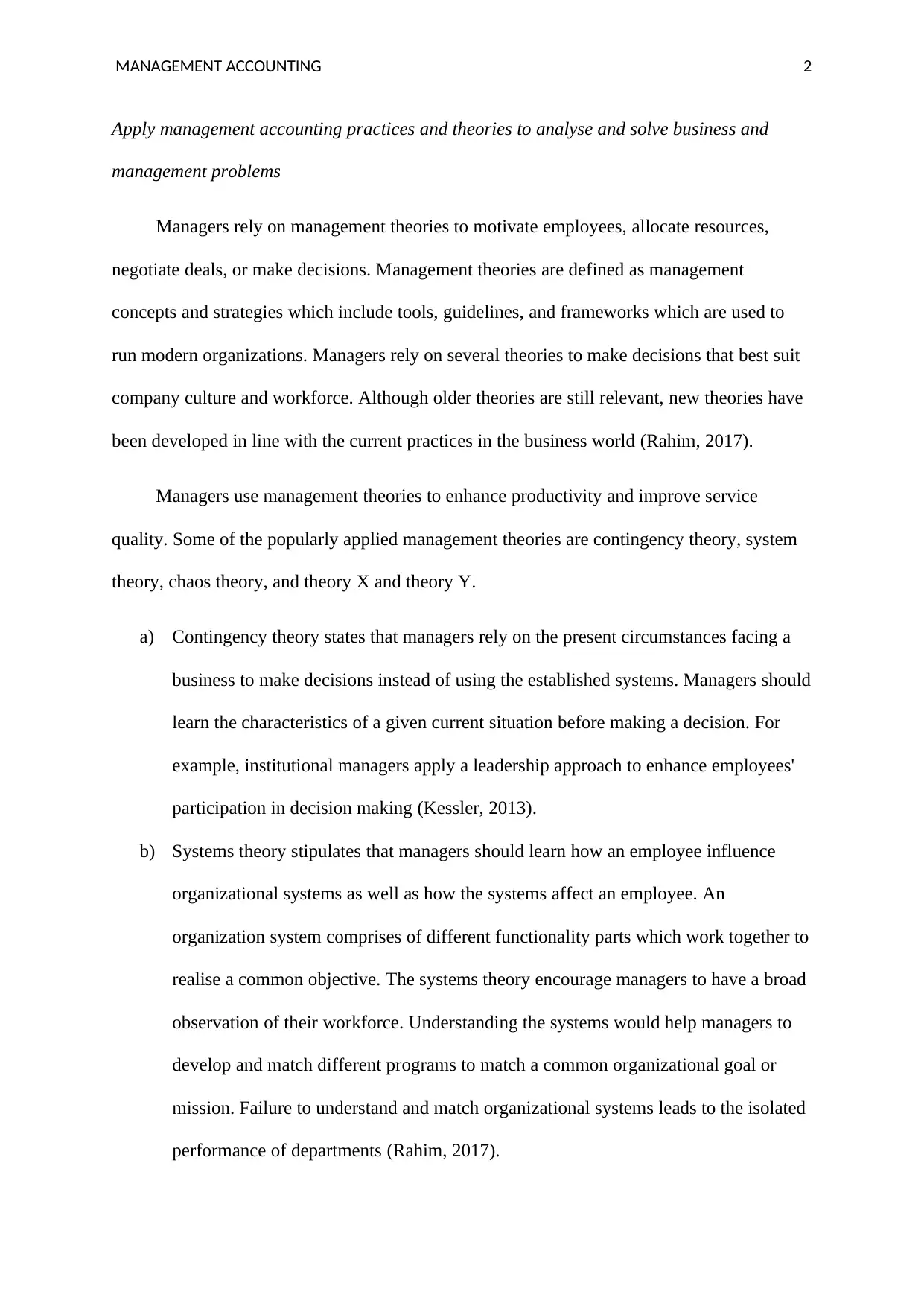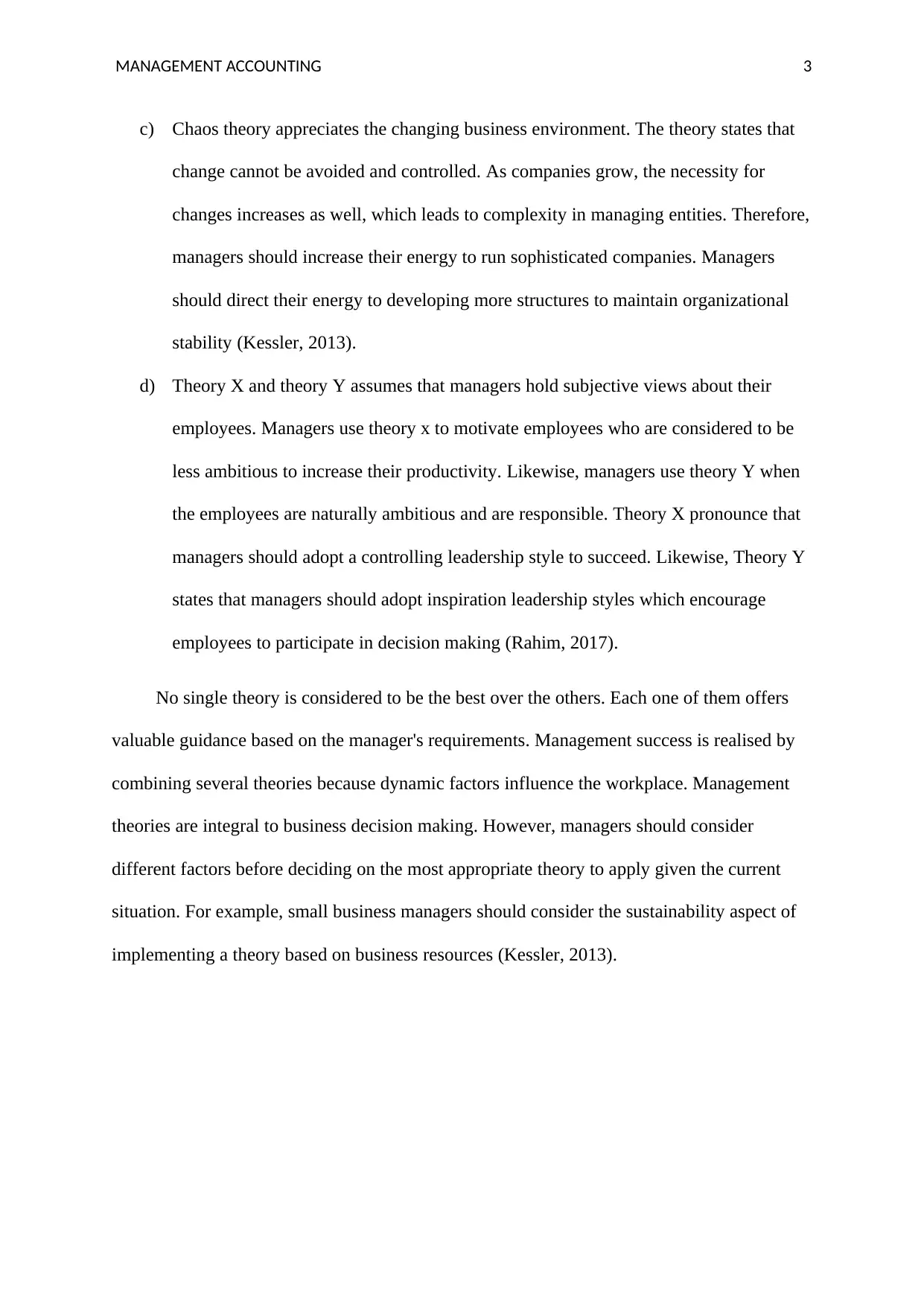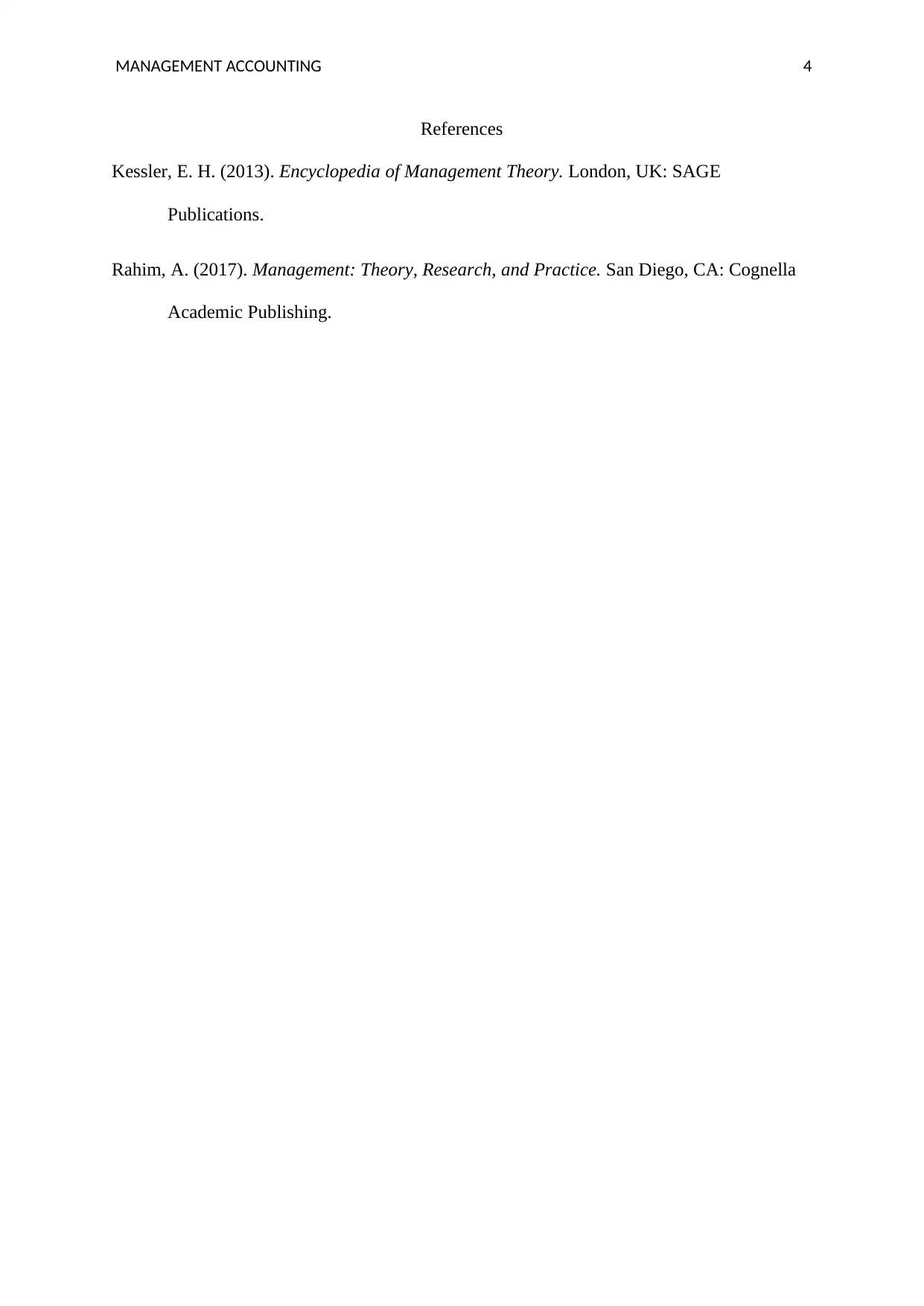Analyse and Solve Business and Management Problems with Accounting
VerifiedAdded on 2023/04/03
|4
|532
|307
Report
AI Summary
This report explores various management accounting theories and their practical applications. It begins by defining management theories and their importance in decision-making, then delves into specific theories such as contingency theory, systems theory, chaos theory, and theory X and Y. The report explains each theory, providing insights into how managers can use them to address different business challenges and enhance productivity. It emphasizes the importance of understanding the context and the need to combine multiple theories for effective management. The conclusion highlights the significance of management theories in business decision-making and encourages managers to consider the specific circumstances when choosing the appropriate theory to apply. The report references key sources to support the analysis.
1 out of 4











![[object Object]](/_next/static/media/star-bottom.7253800d.svg)